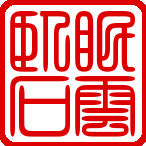Miscellaneous Rhymes on Tea
Pi Rixiu of the Tang dynasty
Miscellaneous Rhymes on Tea
Tea Garden
At leisure, seeking Mount Yaoshi.
Finding and entering the tranquil garden.
Cultivating tea and creating the estate,
Planting tea and planning the field.
Water trickles from the stone spring,
Clouds thread the break in the cliff.
Summer just starting,
White flowers brimming with misty rain.
Teaists
Born on Mount Guzhu,
Now old among the stony gardens.
We talk only of tea,
Our robes scented with mists and clouds.
The courtyard hidden by the jade green plants;
We remain, despite the threat of wild beasts.
At day’s end, laughing as we return home,
Baskets lightly tied about our waists.
Tea Shoots
Budding, three to five inches;
Growing and fostered by the cliffs.
Dreading the cold, shoots turn red;
Doubting the warmth, buds turn purple.
Round like a polished jade axle,
Fragile like a frozen jade flower.
Each encounter is sparse;
Even the sunny side of the mountain is draped in a distant dream.
Tea Basket
Taking up the bamboo basket at dawn,
Crossing quickly to the tea grove.
Steadily tossing in the russet buds,
Our backs soaked with dew.
We rest near Cloud Spring;
Returning, the basket still hangs in the misty tree.
How rewarding is this life,
Even precious gold is eclipsed.
Tea Hut
Sunlit cliffs cradle the commons;
Voices, playful and lively.
The shed draws water from Red Spring;
Before firing, steam the russet buds.
Husbands pulp the tea, next
Wives mold tea, then rest.
Close the brushwood gate;
Pure fragrance fills the moonlit hills.
Tea Stove
Within the mountains, tea happening:
The stove set in the foothills;
The water boils, the rocks emit steam;
The tinder fired, the pine sap fragrant.
Jade leaves steamed, then gelled;
Green essence heated to a luster.
Wherefore such bitter hardship?
One by one, the creation of unsurpassed fare.
Tea Hearth
Chiselled beneath the Green Cliffs,
Precisely two feet deep.
Plastered simply to the rocks,
Fire does not obstruct the stony veins.
It begins the parching of the golden cakes,
Gradually drying the jade tea.
Fir Woods encompasses nine li,
Facing the mountain side.
Tea Brazier
The town of Longshu has fine artisans
Casting this beautiful form.
Standing compact and solid,
Boiling with a rushing sound.
Shadowed by evening clouds — the hermitage;
Luminated by melting snow — the window of pines.
Now ladling rich tea;
Lore and legend grasp this exceeding purity.
Tea Bowl
The artisans of Xing and Yue
All create bowls
As round as the moon,
As light as the clouds.
The floral froth enthralls the eye,
Fruit fragrant foam cleanses the mouth.
A single glance from beneath the pines;
Master Zhi knew this…
Brewing Tea
Fragrant spring water — like milk,
Boil to form strings of pearls.
When crab eyes spray,
Suddenly fish scales rise.
The sound of rain in the pines;
The foam creates a misty green.
Rain still drips in the mountain…
Wine need not be drunk for a thousand days.
唐 皮日休
茶中雜詠
茶塢
閑尋堯氏山
遂入深深塢
種荈已成園
栽葭寧計畝
石窪泉似掬
岩罅雲如縷
好是夏初時
白花滿煙雨
茶人
生於顧渚山
老在漫石塢
語氣為茶荈
衣香是煙霧
庭從𣟤子遮
果任獳師虜
日晚相笑歸
腰間佩輕簍
茶筍
褎然三五寸
生必依岩洞
寒恐結紅鉛
暖疑銷紫汞
圓如玉軸光
脆似瓊英凍
每為遇之疏
南山掛幽夢
茶籝
筤篣曉攜去
驀個山桑塢
開時送紫茗
負處沾清露
歇把傍雲泉
歸將掛煙樹
滿此是生涯
黃金何足數
茶舍
陽崖枕白屋
幾口嬉嬉活
棚上汲紅泉
焙前蒸紫蕨
乃翁研茗後
中婦拍茶歇
相向掩柴扉
清香滿山月
茶竈
南山茶事動
竈起岩根傍
水煮石發氣
薪然杉脂香
青瓊蒸後凝
綠髓炊來光
如何重辛苦
一一輸膏粱
茶焙
鑿彼碧岩下
恰應深二尺
泥易帶雲根
燒難礙石脈
初能燥金餅
漸見幹瓊液
九裏共杉林
相望在山側
茶鼎
龍舒有良匠
鑄此佳樣成
立作菌蠢勢
煎為潺湲聲
草堂暮雲陰
松窗殘雪明
此時勺複茗
野語知逾清
茶甌
邢客與越人
皆能造茲器
圓似月魂墮
輕如雲魄起
棗花勢旋眼
蘋沫香沾齒
松下時一看
支公亦如此
煮茶
香泉一合乳
煎作連珠沸
時看蟹目濺
乍見魚鱗起
聲疑松帶雨
餑恐生煙翠
尚把瀝中山
必無千日醉
Source
Pi Rixiu 皮日休 (834-883 A.D.), “Chazhong zayong 茶中雜詠 (Miscellaneous Poems on Tea) in Cao Yin 曹寅 (1658-1712 A.D.) and Peng Dingqiu 彭定求 (1645-1719 A.D.) et al., comps, Quan Tangshi 全唐詩 (Complete Poetry of the Tang Dynasty, 1705), ch. 611, nos. 47-56.
Notes
The ten poems by Pi Rixiu were responded to by his friend Lu Guimeng陸龜蒙 (?-881), “Fenghe Ximei chaju shiyong 奉和襲美茶具十詠 (Offering Matching Rhymes to Pi Rixiu’s Ten Songs on Tea).” For a translation of the responding themes and poems by Lu Guimeng, see

